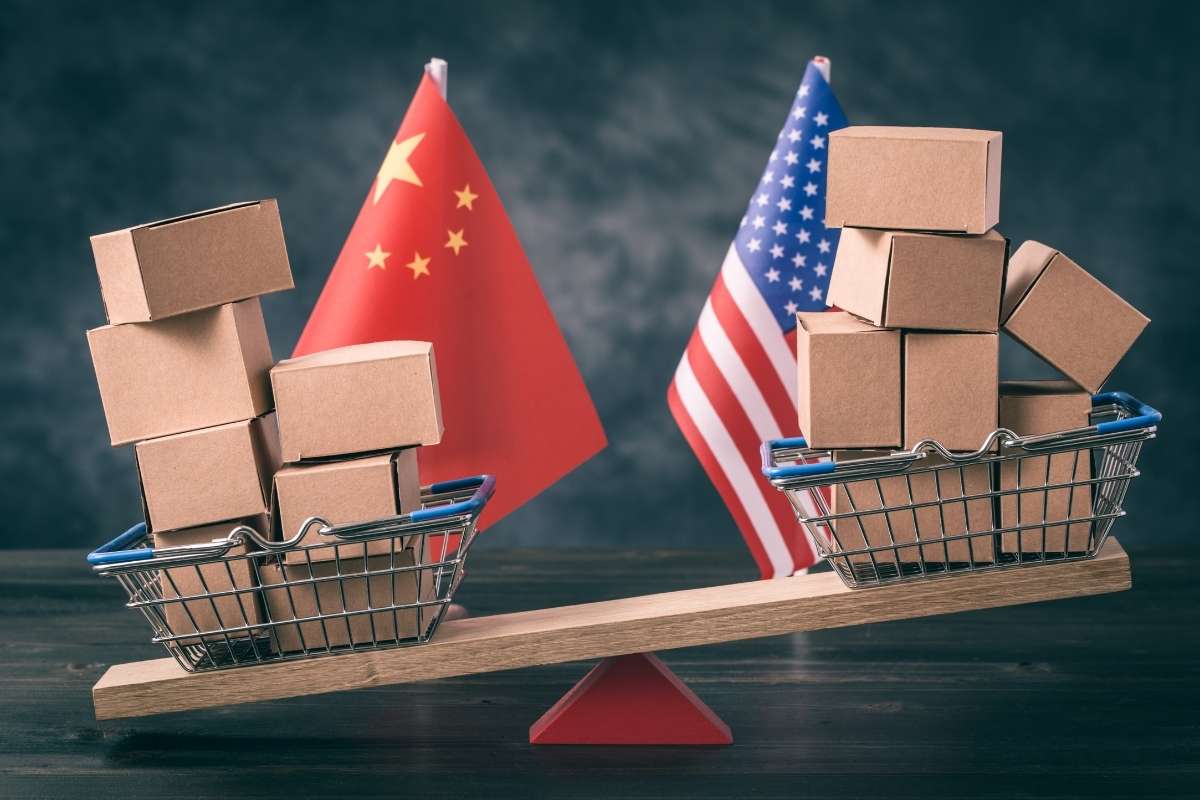
A trade war occurs when two or more countries impose tariffs, barriers, or trade restrictions on each other as part of economic competition. This is usually triggered by efforts to protect domestic industries from foreign dominance. However, its broader effects often ripple through the global economy, resulting in rising prices, disrupted supply chains, and slowed economic growth.
One of the most notable global trade wars is the conflict between the United States and China. The mutual imposition of import tariffs has increased the price of essential goods, pushed inflation higher, and created market uncertainty. Investors who typically rely on traditional assets such as stocks and bonds are increasingly seeking alternatives to protect their wealth.
Read more: Analyzing Bitcoin's Four-Year Cycle and Its Effect on Investors
Trade Wars and Bitcoin
Unstable conditions caused by trade wars have led Bitcoin to be called a modern “safe haven.” New trade tariff policies can drive investor interest in Bitcoin, particularly as they seek to reduce dependence on the U.S. dollar.
Bitcoin is attractive because of its decentralized and limited supply (a maximum of 21 million coins). While central banks and governments are bound by fiscal policy, Bitcoin is free from direct control by any authority. This strengthens its reputation as a hedge asset, much like gold, when traditional markets are shaken by trade conflicts.
The Ripple Effect on Other Cryptocurrencies
However, not all cryptocurrencies benefit. Ethereum, for example, is reported to face significant pressure. Some analysts suggest ETH’s price could fall to as low as $1,000 due to weakening technical performance and reduced positive sentiment.
This means that while Bitcoin may gain the status of a “safe haven,” other cryptocurrencies may not experience the same effect. Investors need to carefully analyze trends, as trade wars create uncertainty that impacts each digital asset differently.
Trade Wars and Global Crypto Adoption
Trade wars can accelerate global crypto adoption. The reason is simple: when cross-border trade is disrupted, the need for more efficient international payment systems grows. Blockchain and cryptocurrencies provide a solution with low transfer costs, 24/7 accessibility, and high transparency.
Moreover, countries affected by trade wars may also consider diversifying their reserves. While many previously relied heavily on the U.S. dollar, there is now a trend toward digital assets like Bitcoin, which are not dependent on the monetary policy of any single country.
Opportunities and Risks for Investors
For investors, trade wars present two sides of the same coin: opportunities and risks. On the one hand, Bitcoin and certain other cryptocurrencies may thrive as they are seen as more resilient to political and economic shocks. On the other hand, crypto volatility remains a critical risk factor.
The best scenario for investors is to treat crypto as part of a diversified portfolio. In this way, when traditional assets are hit by trade war impacts, crypto can serve as a hedge. However, this strategy still requires careful risk management.
Read more: 10 Companies That Use Bitcoin as a Strategic Reserve
Conclusion
Trade wars have become a phenomenon that not only affects inter-country relations but also reshapes global investment patterns. As traditional markets are shaken by uncertainty, Bitcoin has emerged as the leading alternative, often referred to as digital gold.
That said, not all cryptocurrencies will benefit equally in such situations. Investors must carefully weigh opportunities and risks while monitoring evolving geopolitical dynamics. Ultimately, trade wars are not only a stage for inter-country rivalry but also a catalyst for the adoption and growth of the global crypto industry.












%201.png)


